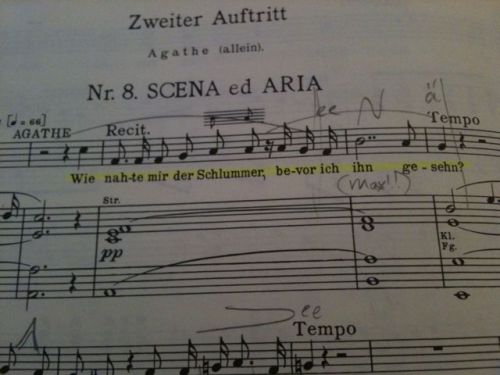Die Entführung at the Film Lounge
Tonight I had the great pleasure of watching a live satellite broadcast of Mozart’s Entführung at the Astor Film Lounge on Ku’Damm.
This place is amazing! It was the first time I’d ever watched opera at the movies. But if opera on film means spending time in a place this schwank, I hope it’s not the last time!
I highly, highly recommend this place. It’s covered in velvet. They serve gourmet food to your seat. They seem to emphasize opera and theatre, but you can also see a number of current first-run type things. Artsy things, odd things. Posters for Avatar, Alice in Wonderland caught my eye as I left.
Seriously. What? What is this place? And do I have to leave?
I have to say that whoever does the programming for these broadcasts has great taste. Tonight featured a fantastic cast in a production at the Liceu in Barcelona; every single performer was just excellent (Diana Damrau was Konstanze, Franz-Josef Selig was Osmin, Olga Peretyatko was Blonde, Christoph Strehl was Belmonte, Norbert Ernst was Pedrillo and Christoph Quest was Selim). Really truly excellent. Great singing, magnificent acting, and the orchestra was amazing.
Stand outs for me were Martern aller Arten and Selig any time he was on stage, but the whole cast was strong. I thought the casting was exactly right… but I did wish I could teleport to the Liceu theatre once or twice to hear the actual weight and balance of voices as opposed to the mic’d & broadcast version.
As you can see from the below photo (all photos are shamelessly taken from the Astor site), we had it pretty rough. Really a lot of suffering; not only do you sit on these incredible reclining leather chairs with footstools, but you have to endure a welcome drink and personal wait service.
Next month we’ll see La Traviata from La Scala with Gheorghiu, and then in June, Pique Dame.
They’re going to have to drag me out of there afterwards; I’m not leaving.








